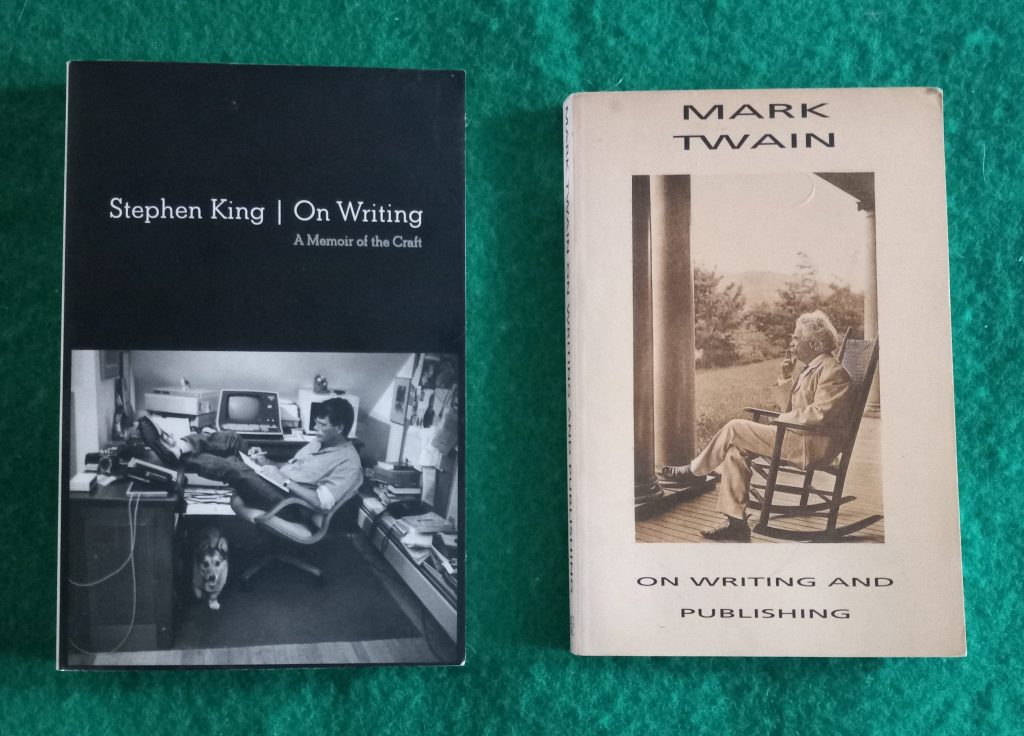It is clear that many of our favorite writers have a gift for using language. Whether the writer is describing a scene, expounding a truth, or making a point, they are able to do so in a way that is memorable. We are innately drawn to good writing and we quickly put away bad writing. We have favorite authors in part because they use language in a way that pleases some part of us. And often we remember a specific sentence or phrase for many years.
A writer that I admire for sheer output (and bestseller status) is Stephen King. He has also written one of my favorite books of advice for writers titled On Writing: A Memoir of the Craft. This book details King’s early efforts to be published as well as some excellent encouragement for other writers. I have read On Writing a number of times and several sentences have always resonated with me as well as positively influencing my own writing. Here are just a few sentences that have stayed with me:
“Writing isn’t about making money, getting famous, getting dates, getting laid, or making friends. In the end, it’s about enriching the lives of those who will read your work, and enriching your own life, as well. It’s about getting up, getting well, and getting over. Getting happy, okay? Getting happy.”
“If you want to be a writer, you must do two things above all others: read a lot and write a lot. There’s no way around these two things that I’m aware of, no shortcut.”

One of my all-time favorite writers, a master of both fiction and non-fiction, is Samuel L. Clemens (perhaps better known as “Mark Twain”). Clemens was both in 1835 in Florida, MO and died in 1910 in Redding, CT. In those 75 years he wrote a vast number of books, essays, and articles including classics like The Adventures of Tom Sawyer, The Adventures of Huckleberry Finn, Roughing It, and Life on the Mississippi. His use of language, both formal and colloquial, can be seen as a graduate-level class in writing. And his stories are just plain fun to read. His pithy statements made in both print and during public speaking engagements, made him a true multi-media star in his day. His freely-given advice includes:
“Twenty years from now you will be more disappointed by the things you didn’t do than by the ones you did do. So, throw off the bowlines. Sail away from the safe harbor. Catch the trade winds in your sails. Explore. Dream. Discover.”
“What is joy without sorrow? What is success without failure? What is a win without a loss? What is health without illness? You have to experience each if you are to appreciate the other. There is always going to be suffering. It’s how you look at your suffering, how you deal with it, that will define you.”
Clemens also wrote a book for writers, titled On Writing and Publishing. This book also has some succinct instruction that will guide and direct authors seeking to improve and hone their abilities. He also presents some guidance for would-be publishers, a product of difficult experience, in that Clemens started and closed his own publishing company. In writing for authors, he presents his perspective on the endeavor:
“Substitute ‘damn’ every time you’re inclined to write ‘very;’ your editor will delete it and the writing will be just as it should be.”
“The difference between the almost right word and the right word is really a large matter. ’tis the difference between the lightning bug and the lightning.”
Two final statements from King and Clemens, originally intended for other writers, are similar and hold a great deal of wisdom for everyone. That is that anyone who wants to improve needs to make time for reading. More than just reading work-related material, a wide range of fiction and non-fiction improves the mind and presents new ideas. From these exhortations, we can grow as participants in a modern society and share the expanding synthesis of our ideas.
“If you want to be a writer, you must do two things above all others: read a lot and write a lot. There’s no way around these two things that I’m aware of, no shortcut.” Stephen King
“In a good bookroom you feel in some mysterious way that you are absorbing the wisdom contained in all the books through your skin, without even opening them.” Samuel L. Clemens
